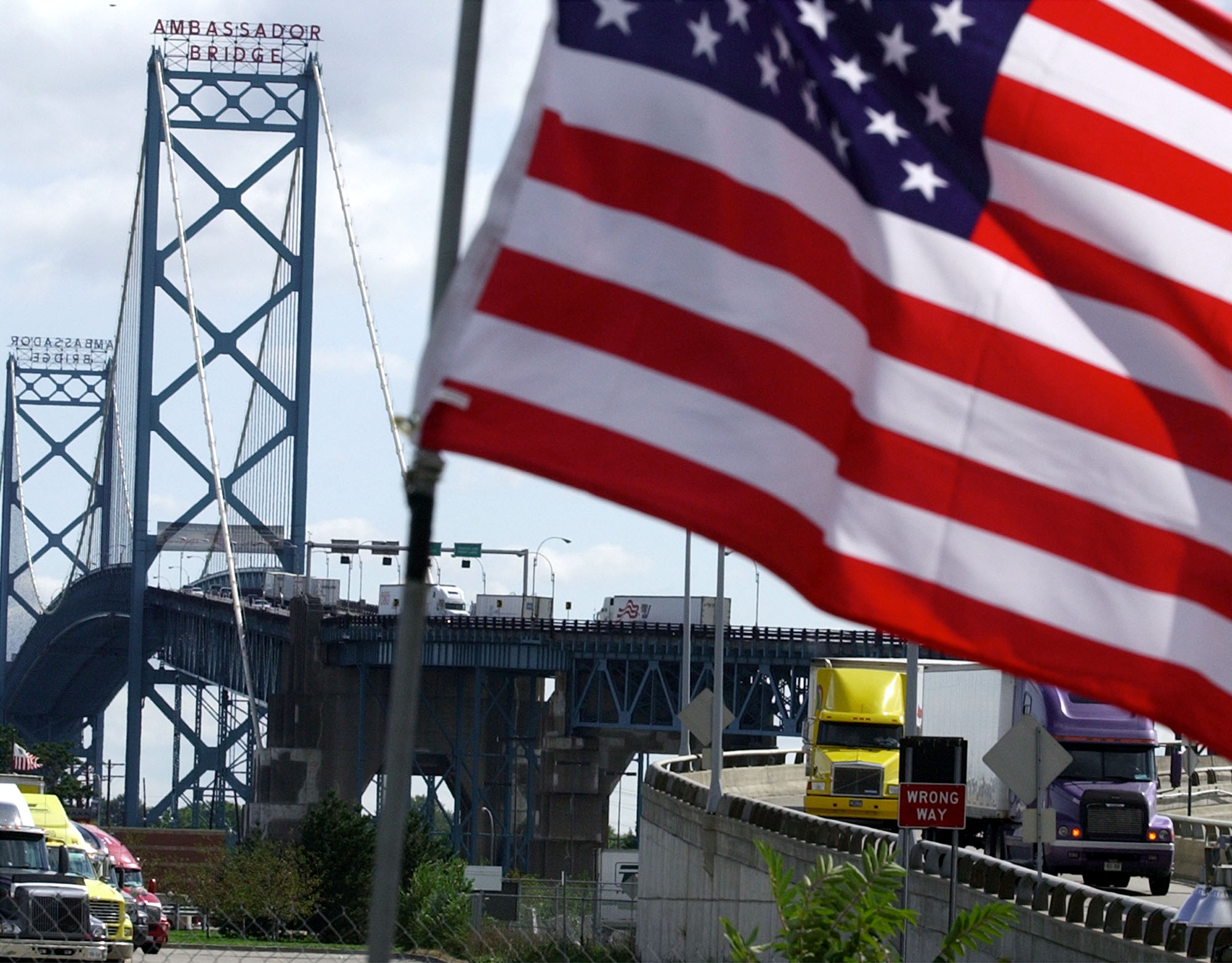The president of the Automotive Parts Manufacturers' Association believes it's just a matter of time before auto manufacturers or the parts suppliers are forced to stop production due to tariffs imposed by U.S. President Donald Trump.
Flavio Volpe told AM800's The Shift with Patty Handysides that what we know is this surtax is probably four or five times a company's profit.
"It's only a matter of time before one of the OEMs {Original Equipment Manufacturer} says we're going to stop production here to try and figure things out. Or suppliers who happen to be the importer of record say we don't have the liquidity for that, and it's going to go like a domino set," he says.
Trump's 25 per cent across-the-board tariffs on imports from Canada and Mexico, with a lower 10 per cent levy on Canadian energy, took effect Tuesday.
He's also indicated he plans to implement 25 per cent tariffs on all steel and aluminium imports coming into the U.S. on Mar. 12. These duties would be on top of any existing tariffs.
As a result of the U.S. tariffs, Canada has introduced 25 per cent retaliatory tariffs on $30 billion worth of American products and will expand them to cover another $125 billion in U.S. goods in 21 days.
Volpe says if you're an automaker with a big account, you have a customs broker who would invoice you for the tariffs every 15 days or so.
"For suppliers who, in the rare case, are importers of record who don't have a brokerage account, they're going to have to pay it today. If you're shipping $40,000 today, then you have to come up with $10,000. Nobody is that elastic," he says.
The tariffs have been imposed in the U.S. through the International Emergency Economic Powers Act, as Trump argues that the illicit global fentanyl trade and immigrants at the Mexican border both qualify as "unusual and extraordinary" foreign threats to American national security.
Volpe says there are 172 Canadian-owned parts facilities in the U.S., and those U.S. investments and U.S. employees may be the key to get standing before a court to challenge the tariffs and try to get an emergency stay.
He says they're not panicking.
"We are not going to throw ourselves in the wood chipper. I'm collecting some bricks to see if we can throw them at the blades right now. If there is a chance to get us out of this clean, there are some really passionate people who don't sleep at night who are working on your behalf," he says.
Canada's automotive industry accounts for over $19 billion of Canada's GDP and has an annual revenue of $100 billion. The industry employs about 128,000 people directly, and most of those are in Ontario, according to the Canadian Vehicle Manufacturers' Association.
with files from CTV News.


